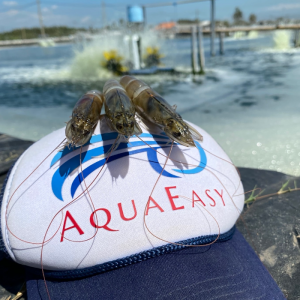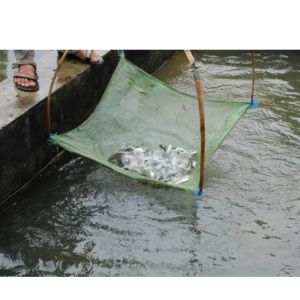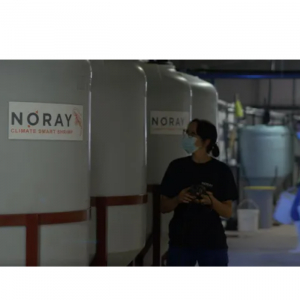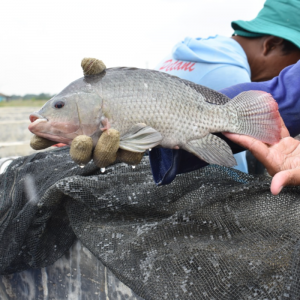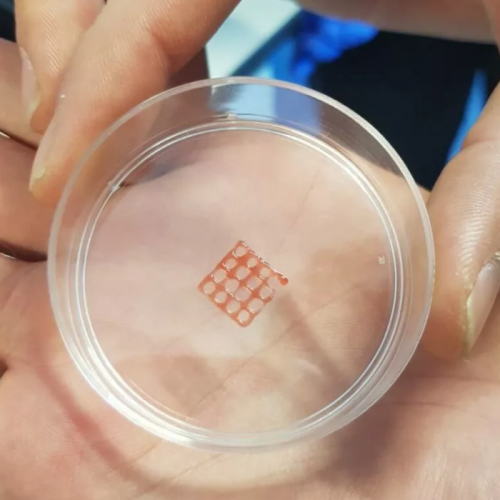
Scientists Use Algae to Cultivate Boneless Sea Bass Fillet
| Mon, 07 Mar 2022 - 15:08
A team of scientists plans to use algae to develop new techniques for cultivating boneless fish fillets from sea bass cells.
The Algae2Fish project is being led by Associate Professor Frederico Ferreira from the University of Lisbon’s Institute for Bioengineering and Biosciences, with funding from sustainable food NGO the Good Food Institute (GFI).
The team aims to cultivate the meat from sea bass cells, creating a real fish fillet with the same look, taste and texture as conventionally produced sea bass – and even the same health benefits – but without the bones or the negative environmental impact. It will also be free from the mercury and microplastics that are often found in fish.
The scientists aim to use techniques including 3D printing to create edible scaffolds using material extracted from algae and plants. These will be used to give structure to a product cultivated from fish cells – helping recreate the complex fibrous texture seen in conventionally produced fish, and contributing to the taste and texture.
Read more: Algae Answer to Aquaculture Wastewater Problem
The algae used will also contain antioxidants, adding to the nutritional value of the finished product by providing the omega-3 fatty oils found in fish.
The team will use electrical stimulation aiming to enhance fish stem cells’ transformation into muscle and fat. These can then be used to create different ‘bioinks’, using 3D printing to form patterns along the scaffold, recreating the fish’s flavour as well as a fillet’s characteristic alternating stripes of muscle and fat.
If successful, their technique may be made available to other companies around the world who are developing new ways of cultivating seafood.
The algae will be completely sustainable as it can be grown locally by existing suppliers. Professor Ferreira hopes that if the technique is eventually scaled up and used by food manufacturers, new supply chain industries will be created to provide this raw material, as well as manufacturing and maintaining the specialist equipment needed.
Europe imports three times more seafood than it produces, and global demand for seafood is expected to increase by 5% over the next decade. Nearly half of EU marine habitats have been assessed as either endangered or near threatened, mainly due to pollution, fishing and aquaculture. Cell cultivated fish can help satisfy growing demand without further harming the oceans.
Read more: Can Barramundi Become "The Salmon of The Tropics"?
The Algae2Fish team was one of 21 from across four continents to successfully apply for GFI’s Competitive Research Grant programme, which funds innovative open access research into plant-based foods, cultivated meat and fermentation.
With very little public funding dedicated to sustainable protein research and development, GFI set up the programme with help from philanthropic donors in order to help fill the funding gap. Because all findings will be publicly available, this research can be used by scientists and companies around the world to advance plant-based and cultivated meat innovation.
Frederico Ferreira, Associate Professor at the Institute for Bioengineering and Biosciences, Instituto Superior Técnico, University of Lisbon, said: “In Portuguese we have a saying – a fish without bones is a problem solved. This will create a boneless fillet, which will be very good for kids to eat, but I hope it will also help solve a lot of other problems.
“I love fish, I come from a country that loves fish, and I want to carry on eating fish. There’s a role to play for small-scale sustainable fishing, but if we want everyone to carry on enjoying fish we can’t continue the deep sea fishing that causes so much damage to ocean ecosystems.”
Read more: Land-based Aquaculture Promises More Sustainable Seafood
Seren Kell, science and technology manager at the Good Food Institute Europe, said: “Professor Ferreira’s project is an excellent example of the kind of innovative research we need to provide people with the fish they enjoy without harming our oceans.
“There are huge opportunities for more companies and governments to invest in plant-based and cultivated seafood to meet growing demand in a sustainable way and I hope this study will show others exactly what is possible.”
Source: gfi Europe













